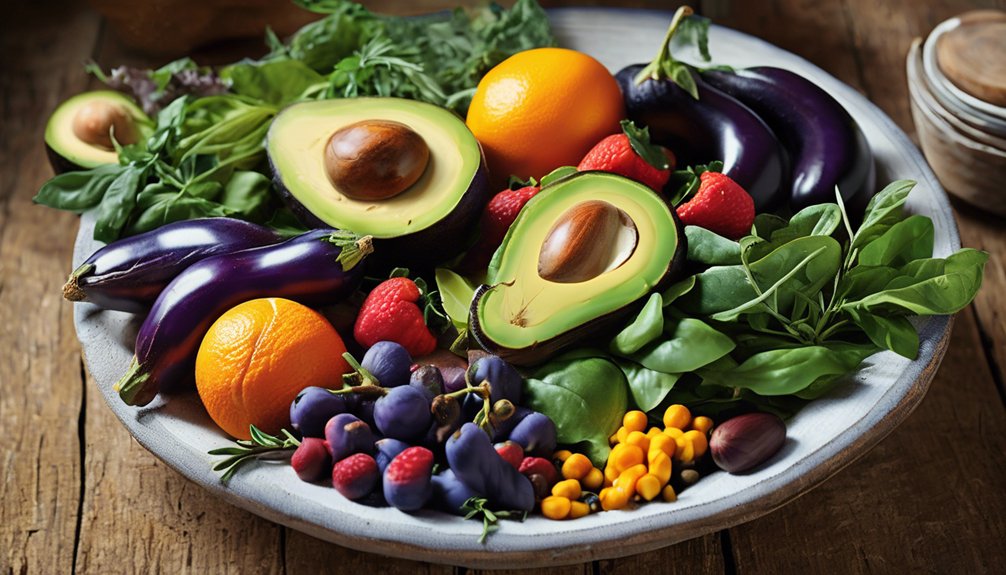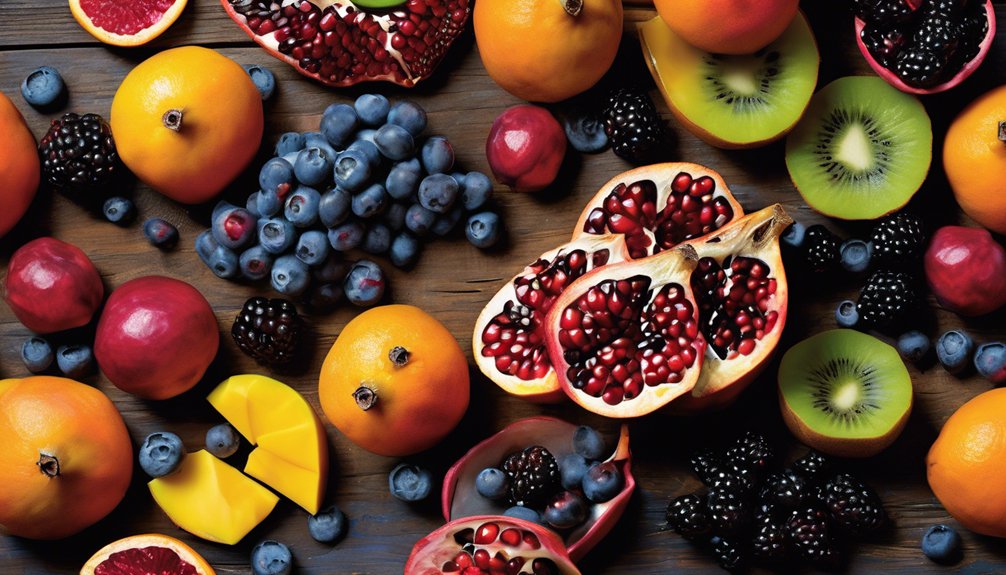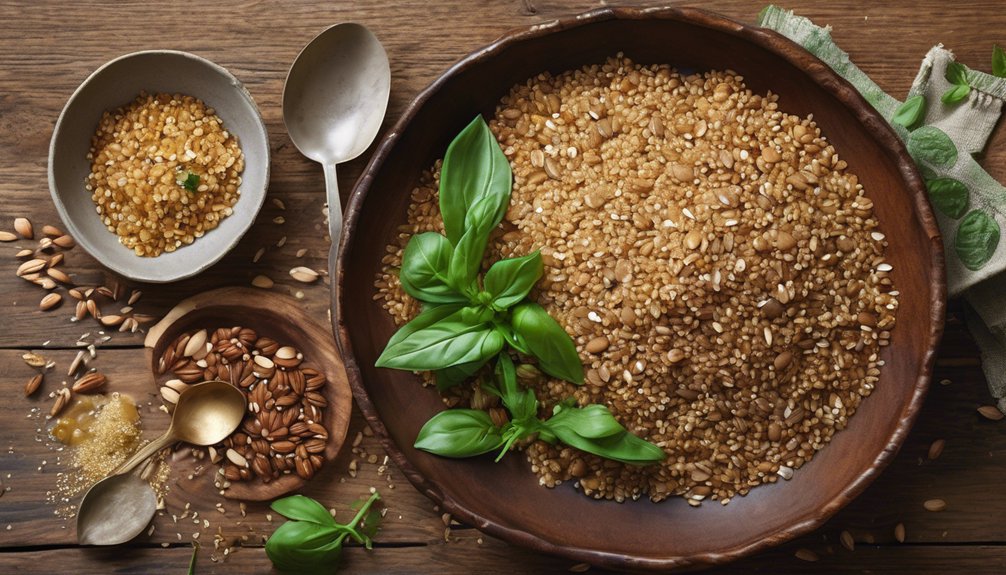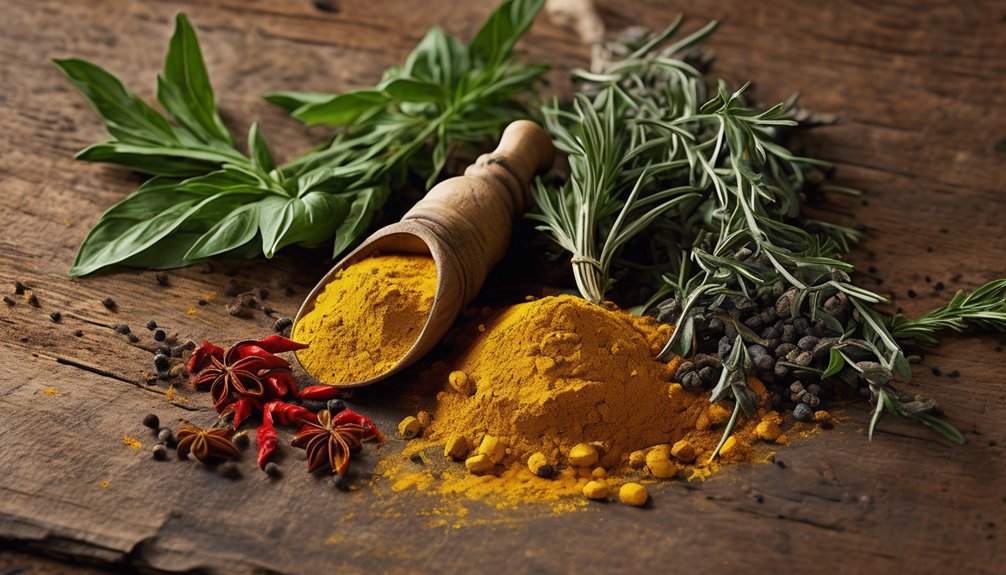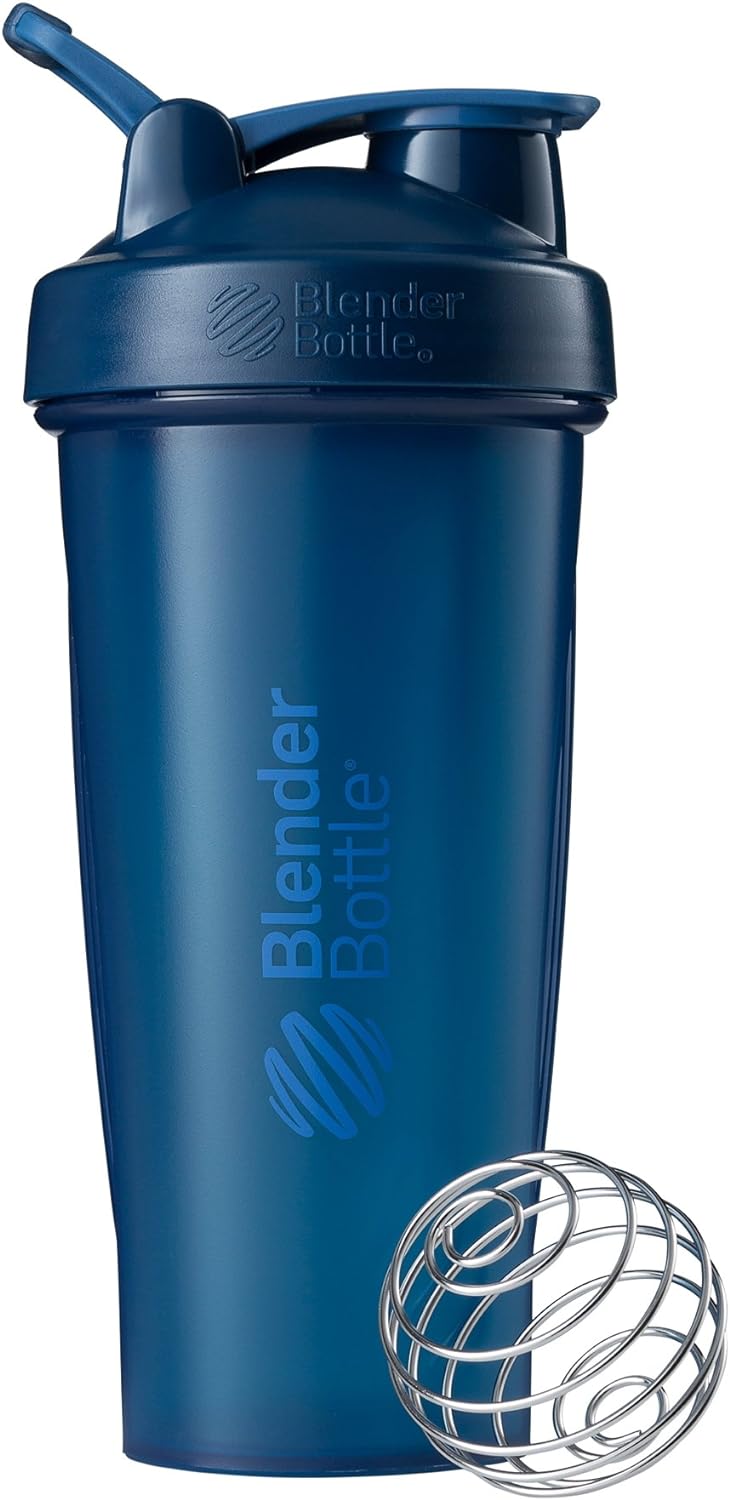Anti-Inflammatory Foods You’ll Love
When it comes to maintaining a healthy lifestyle, anti-inflammatory foods play a crucial role. These vibrant options not only add flavor to your meals but also help combat inflammation in your body. Imagine incorporating colorful fruits, leafy greens, and wholesome grains into your diet. Each choice you make can have a significant impact on your overall health. Curious about which specific foods can truly make a difference? Let's explore some delicious options together.
Key Takeaways
- Vibrant berries like blueberries and strawberries are rich in flavonoids that help reduce oxidative stress and inflammation.
- Leafy greens such as kale and spinach are packed with essential nutrients and antioxidants that nourish the body and combat inflammation.
- Whole grains like quinoa and brown rice provide fiber and antioxidants that promote gut health and lower inflammation levels.
- Healthy fats from avocados and nuts support heart health and enhance overall well-being while reducing inflammation.
- Spices like turmeric and ginger have powerful anti-inflammatory properties, making them excellent additions to meals for flavor and health benefits.
Colorful Fruits Packed With Antioxidants
Colorful fruits aren't just visually appealing; they're also powerhouses of antioxidants that can help combat inflammation in your body.
When you indulge in vibrant berries like blueberries, strawberries, and raspberries, you're not only treating your taste buds but also providing your system with essential nutrients. These colorful berries are rich in flavonoids, which can reduce oxidative stress and lower inflammation levels.
Don't forget about tropical fruits like pineapple and mango, either! They're loaded with bromelain and vitamin C, both of which have anti-inflammatory properties.
Leafy Greens for a Nutrient Boost
Incorporating leafy greens into your meals is another fantastic way to enhance your diet and fight inflammation.
Kale benefits are numerous; it's packed with vitamins A, C, and K, as well as antioxidants that help combat oxidative stress. You can toss it in salads, smoothies, or sauté it for a delicious side dish.
Don't overlook the diverse spinach varieties, either! From baby spinach to mature leaves, they offer a mild flavor and high levels of iron and magnesium.
Whether you're adding them to a breakfast scramble or blending them into a creamy soup, these greens provide essential nutrients that your body craves.
Embrace these options to nourish your body and keep inflammation at bay!
Whole Grains to Soothe Inflammation
When you choose whole grains over refined options, you're not just making a healthier choice; you're actively helping to reduce inflammation in your body. Whole grains are packed with nutrients and fiber, which work wonders for your health.
Here are four delicious options to consider:
- Quinoa: Not only is it a complete protein, but quinoa benefits also include anti-inflammatory properties that can soothe your body.
- Brown Rice: This hearty grain is rich in antioxidants and fiber, making it a fantastic choice for reducing inflammation.
- Oats: Loaded with beta-glucans, oats can help lower cholesterol and inflammation.
- Barley: This versatile grain has high fiber content, promoting gut health and reducing inflammatory markers.
Embrace these whole grains for a happier, healthier you!
Healthy Fats for a Balanced Diet
Healthy fats play a crucial role in maintaining a balanced diet, as they not only provide essential nutrients but also help reduce inflammation. Incorporating healthy fats into your meals can be delicious and satisfying.
For instance, the avocado benefits go beyond its creamy texture; it's packed with monounsaturated fats that support heart health and lower inflammation.
Don't forget about nut varieties like almonds, walnuts, and pistachios. They're rich in omega-3 fatty acids and antioxidants, which can further bolster your body's defenses against inflammation.
Snacking on these nuts or adding avocado to your salads can transform your dishes into nutrient-rich powerhouses. Embrace these healthy fats, and you'll feel the positive effects on your body and overall well-being.
Spices and Herbs With Healing Properties
Many spices and herbs possess powerful healing properties that can enhance your meals while benefiting your health. Incorporating these into your diet isn't just tasty; it's also a smart choice for reducing inflammation.
Here are some top picks:
- Turmeric: Known for its vibrant color, turmeric benefits your body with its anti-inflammatory and antioxidant properties.
- Ginger: This spicy root has ginger properties that help alleviate nausea and reduce muscle pain.
- Garlic: Beyond flavor, garlic supports immune function and has anti-inflammatory effects.
- Cinnamon: This sweet spice can lower blood sugar levels and reduce inflammation markers.
Adding these herbs and spices to your meals not only spices them up but also offers a delightful boost to your overall health.
Frequently Asked Questions
How Can I Incorporate These Foods Into My Daily Meals?
You can easily incorporate these foods by planning your meal prep. Try recipe ideas like quinoa salads, veggie stir-fries, or smoothies. Experiment with spices and herbs to enhance flavors while boosting your meals' nutritional benefits.
Are There Any Foods I Should Avoid for Inflammation?
You should avoid pro-inflammatory foods like refined sugars, trans fats, and processed meats, as they can act as dietary triggers for inflammation. Focus on whole, natural foods to support your body's health and well-being.
How Long Does It Take to See Results From an Anti-Inflammatory Diet?
When you embark on this journey, timeframe expectations vary widely. Many notice changes within a few weeks, but individual variations can stretch that to months. Stay patient, and trust the process; your body will thank you.
Can These Foods Help With Chronic Pain Management?
Absolutely, your food choices can significantly impact chronic pain. Incorporating anti-inflammatory foods may reduce inflammation and provide relief. By choosing the right options, you're actively contributing to your pain management journey and improving your overall well-being.
Are There Any Supplements to Complement These Anti-Inflammatory Foods?
While exploring natural remedies, consider anti-inflammatory supplements like curcumin, omega-3 fatty acids, and ginger. They can beautifully complement your dietary choices, enhancing your journey towards wellness and helping you manage inflammation more effectively.
Conclusion
Incorporating anti-inflammatory foods into your diet isn't just beneficial; it's a delicious adventure. Enjoy vibrant fruits for their antioxidants, savor leafy greens for their nutrients, relish whole grains for their soothing properties, embrace healthy fats for heart health, and spice things up with herbs that heal. By making these choices, you're not only enhancing your meals but also nourishing your body. So, let each bite be a step toward better health and a more vibrant you!
